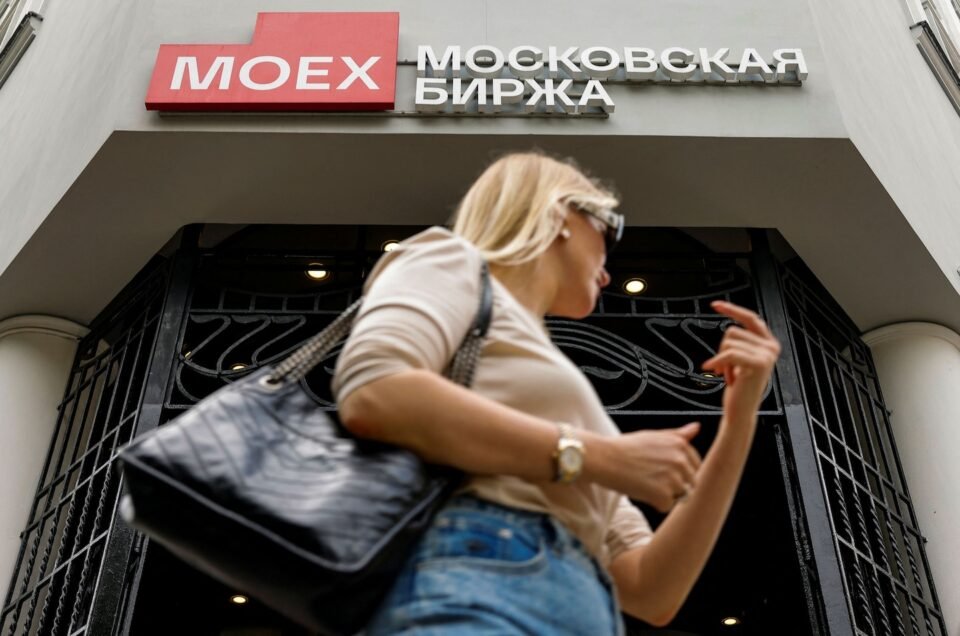The sweeping new sanctions — announced by the Treasury Department on Wednesday — singled out the Moscow Exchange, Russia’s main financial marketplace, for helping Russians “profit from the Kremlin’s war machine,” and broadened the risk of secondary sanctions for any foreign financial institution doing business with Russia’s war economy.
The Moscow Exchange operates trading markets in stocks, bonds, derivatives, currencies and precious metals.
The new sanctions also targeted companies based in China selling semiconductor chips to Russia, as well as more than 300 individuals and entities in Russia, Europe, Asia and Africa.
Medvedev, who has become one of the most vociferous Russian officials in condemning the West, called on Russians to “look for vulnerabilities” in Western economies and to “hit them in all areas.” “We must find problems in their most important technologies and strike them mercilessly,” he said. “Literally destroy their energy, industry, transport, banking and social services.”
Stocks on the Moscow exchange initially plummeted on Thursday, though they recovered later. Economists and former senior officials warned that the new measures barring trading in dollars and euros would significantly impact the cost of doing business for Russia’s export and import based economy, possibly further stoking inflation, which is already high — officially at 8 percent.
Although Russians have increasingly switched to the Chinese yuan since Moscow’s invasion of Ukraine in February 2022, with 54 percent of all currency trading on the Moscow exchange now conducted in the Chinese currency, dollars and euros are still important for Russia’s economy.
Russian businesses now must convert dollars and euros at Moscow banks instead of on the centralized exchange, allowing the banks to charge high commissions for each trade and increasing the spreads at which dollars and euros are bought and sold.
“Russia is still dependent on using Western currencies for trade with all countries except for China,” said Janis Kluge, an economist at the German Institute for International and Security Affairs. “There is huge demand for trading these currencies.”
The new sanctions, Kluge said, “will increase costs for importers and exporters” and add new “layers of complexity” to Russian business transactions. “The impact is psychological,” he said, and further increases Russia’s isolation.

